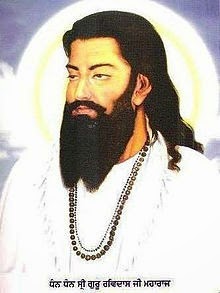Angered at Tyagaraja's rejection of the royal offer, his brother threw the statues of Rama Tyagaraja used in his prayers into the nearby Kaveri river. Tyagaraja, unable to bear the separation with his Lord, went on pilgrimages to all the major temples in South India and composed many songs in praise of the deities of those temples.
Tyagaraja, who was totally immersed in his devotion to Rama and led the most spartan way of life without bothering in the least for the comforts of the world, did not take any steps to systematically codify his vast musical output.
Tyagaraja composed thousands of devotional compositions, most in praise of Lord Rama, many of which remain popular today. Of special mention are five of his compositions called the Pancharatna Kritis(English: "five gems"), which are often sung in programs in his honour.
Kriti (Sanskrit: कृति, krti) is a format of a musical composition typical to Carnatic music, an Indian classical music style. Kritis form the backbone of any typical Carnatic music concert and is the longer format of a Carnatic music song.
Of the five Pancharatna Kritis, four are in Telugu and one in Sanskrit. They are set to music in five ragas: Nata, Gaula, Arabhi, Varali and Sri. They are set to Adi Tala and each raga represents the mood of the song and the meaning of its lyrics. All the kritis are composed in the style of a Ragam Tanam Pallavi (RTP) with the charanams (stanzas) substituting for the kalpana swaras (improvisatory passages) in the pallavi section of the RTP.
The Pancharatna Kritis are:
1) Jagadananda Karaka - Ragam Natai
2) Duduku gala - Ragam Goula
3) Sadhinchane - Ragam Arabhi
4) Kanakana Ruchira - Ragam Varali
5) Endaro Mahanubhavulu - Shree Ragam
The melodic forms of these compositions (Nata, Goula, Arabhi, Varali, Sri) are the five
Ghana ragas of Carnatic music also called the ghanapanchaka. These 5 ragas lend themselves to elaborate improvisations. They are so called because they are suited to playing tanam on the veena. Nata and Varali are the most ancient of the Carnatic ragas and date back to over a thousand years ago.
Dr. Kalam, while addressing the first joint session of Parliament after assuming as the President of India, began his address with:
endarO mahAnubhAvulu-andariki vandanamulu
Salutations to all those great men in this world
Here is a collection of Carnatic Music's 5 Gems, Pancharatna Krithis, rendered by great people, who have spent their life in this field. It begins with MSS rendering Jagadanadakara, then to DK Jayaraman's Dudukugala. This is followed by Santhanam rendering Sadinchene and Kanakanaruchira by Balamurali. It concludes with Endaro by Ariyakudi Ramanuja Iyengar.
Some other Kritis by Tyagraja
.jpg)
.jpg)
.jpg)

.jpg)
.jpg)
.jpg)
.jpg)
.jpg)


